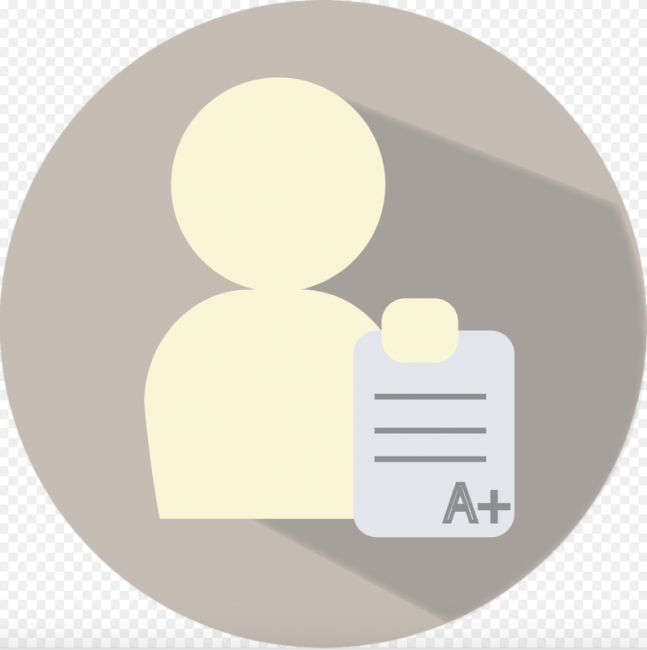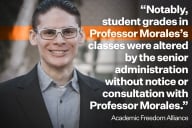You have /5 articles left.
Sign up for a free account or log in.

Pixabay.com
Steven D. Krause, professor of English at Eastern Michigan University, says he used to be stickler for deadlines and attendance. He deducted letter grades for assignments every 72 hours that they were late and failed students who didn't contribute to virtual class discussions. Then COVID-19 happened.
Now, he says, "I’m starting to really rethink the value of being such a hard-ass instead of trying to be like an empathetic human."
Why the shift? Krause says he uncharacteristically spent a few hours trying to track down students who hadn't checked in or who missed deadlines during the pandemic. He found out they were really struggling, with unemployment, extra caregiving, hospital jobs that had them overwhelmed or scared (or both), and poor or no internet service at home.
Those conversations prompted Krause to extend deadlines, abandon penalties for late work and cut big chunks of assignments due at the end of term. The revelations also prompted Krause to write a blog post called “No One Should Fail a Class Because of a Fucking Pandemic.”
“I have told students repeatedly that as long as they stay in touch with me and as long as they give it all a try, they will all at least pass the class,” he wrote. “Because look, even my hard-assed, aloof professor persona believes no one should fail a class because of a fucking pandemic.”
Beyond Pass-Fail
Beyond pass-fail policies, which are generally adopted at the institutional level, individual professors are cutting nonessential course content, moving deadlines to the end of the term, dropping low assignment grades and grading leniently overall.
Historian Kevin Gannon, director of the Center for Excellence in Teaching at Grand View University and author of Radical Hope: A Teaching Manifesto (West Virginia University Press), out this month, said he’s a “big proponent of adjusting our grading significantly” right now.
It’s impossible to argue that students are getting the same experiences and opportunities via remote learning during the public health crisis. “So to assess like that's still the case is ludicrous,” he said. Many students are doing extra caregiving and other work, for example, while campus closures mean that they can’t access libraries, tutoring and support services like they did before.
Grading as if things are “normal,” Gannon said, “strikes me as the equivalent of giving someone a swimming test during a flood.”
In a survey of professors released this week by Bay View Analytics, almost two-thirds of respondents said they changed "the kinds of assignments or exams" they gave to students in the switch to remote learning. Just about half said they lowered their expectations for the amount of work students would be able to do. The same share also "dropped some assignments or exams."
Roughly one-third of the sample "lowered the expectations about the quality of work that my students will be able to do." Fewer respondents (18 percent) said they dropped some planned readings.
Gannon said that just how professors adjust coursework and assessment is up to them alone.
“It's such a context-dependent thought process in so many ways, so faculty are the best positioned to make the most equitable decisions.”
Not a ‘Real A’?
Not all professors are changing their expectations for students. Some faculty members report hearing from their students that their other professors are refusing to shift deadlines or attendance policies for synchronous class meetings, for example.
Those professors probably have some fans outside academe. David Brooks, for instance, wrote a recent New York Times column saying that grade inflation and other means of “coddling” students have gone way too far, especially in certain fields. He argued that this is an opportunity to reset, as training a young person means “training her or him to master hardship, to endure suffering and, by building something new from the wreckage, redeem it.”
Still, many professors strongly disagree that now is the time to talk about putting students through an academic crucible.
Jessica Calarco, associate professor of sociology at Indiana University, said she’d seen criticisms of relaxed grading policies for students on social media, such as “Who would want a doctor who didn’t get a real A?”
Her response? “I’d personally argue that someone shouldn’t be prevented from being a doctor in the future because of hardships they’re facing in their life right now.”
In Calarco’s own classes, she’s focused on “giving my students the opportunity to learn, as opposed to holding them accountable for achieving a set of learning outcomes. I’m giving my students, as equitably as possible, a chance to keep learning the materials that they came into the course expecting to learn.”
She added, “Whatever they want to get out of it or are able to get out of it is OK with me. I don’t want to be a stressor, adding that to their lives in what is already a challenging moment.”
Student Response
To Calarco, grades right now aren’t necessarily a measure of skills or ability, but rather the socioeconomic and other privileges students have -- or don’t. No one in her classes will get a worse grade than they had pre-pandemic. Students were incredulous at first, she said.
How is the approach working? For a class of 250 students, Calarco lectures live on Microsoft Teams. About 30 to 50 students show up for each session, and others watch the videos and read the transcripts later.
Krause emphasized in an email that he's not relaxing standards but adopting "pandemic emergency standards." In any case, he said, "my students are with me on this. I have a few students who would have otherwise had better grades who are going to opt into the pass-fail option, and sure, I probably have some students taking advantage of the lightened load. And there's been a little grade-grubbing, but whatever, that happens almost every term. Mostly I think my students are grateful."
As for pass-fail, Calarco said she worried about institutions making it an option rather than a requirement. The former, she said, “leaves a student vulnerable to judgment for choosing pass-fail.”
Prerequisites
Harvard Medical School, as one example, has said that it will not accept pass-fail grades in prerequisite courses from applicants who chose that method of grading where it was optional. It will, however, accept pass-fail prerequisite course grades from students that attend institutions where it is a blanket policy. (Harvard University’s undergraduate college adopted a universal pass-fail policy last month).
Amihai Glazer, professor of economics at the University of California, Irvine, wrote in an Inside Higher Ed column that institutions should consider canceling spring terms where possible. Short of that, Glazer said in an interview that professors might relax standards for some students right now -- but not all.
Specifically, Glazer advocated maintaining typical standards for upper-division courses populated by students closest to graduation.
“They won’t have time to make it up,” he said. “And lowering standards for upper-division classes will hurt students once they’re on the job market.”
Junior and senior engineering students will soon graduate and encounter opportunities that require they know about bridge design, for example, Glazer said. Any program that doesn't demand that they struggle to understand that topic -- or to discover they don't like it, or that it's not one of their strengths -- will fail them.
Giving all students A’s, as has been proposed by some student advocates, would also hurt students on the job market, Glazer said, arguing that employers are savvy enough to know which institutions or programs are doing so. Moreover, employers who typically recruit top students from lesser-known programs might discriminate on similar grounds, if everyone in their year gets an A.
“This idea that we’re punishing students if they don’t all get high grades assumes employers are stupid,” Glazer said.
What about students who don’t necessarily want to be engineers or work in one specific field?
Glazer said he didn’t know the ins and outs of, say, English literature prerequisites. He did suggest that professors consider relaxing standards for nonmajors who are only taking their courses as electives or general education requirements, however, so that they may focus on their major courses.
Opportunity vs. Evaluation
Christina DeJong, an associate professor of criminal justice at Michigan State University, is teaching a prerequisite course in introduction to linear regression for first-year doctoral students. Her options for cutting content are few, as students need to be prepared for the next course in the sequence.
That said, DeJong removed individual deadlines so that students may prioritize other classes with unchanged due dates. She also decided to drop each student’s two lowest assignment grades this term.
So far, students in that class are “are highly motivated and haven't seemed to have any trouble.”
For her undergraduate general education courses, DeJong did cut some material so students could prioritize courses within their majors. She also removed due dates so students could work at their own pace. And she let students know the minimum points required for each letter grade so they could set their own priorities, based on their specific needs.
For obvious reasons, this academic term is unique. But Calarco said the experience has increased her interest in ungrading, a growing movement that embraces ongoing formative feedback over summative assessments.
“I’m seriously looking at moving ahead with that in future semesters,” she said, “making myself an opportunity for students to learn, instead of an evaluator of students' learning.”








